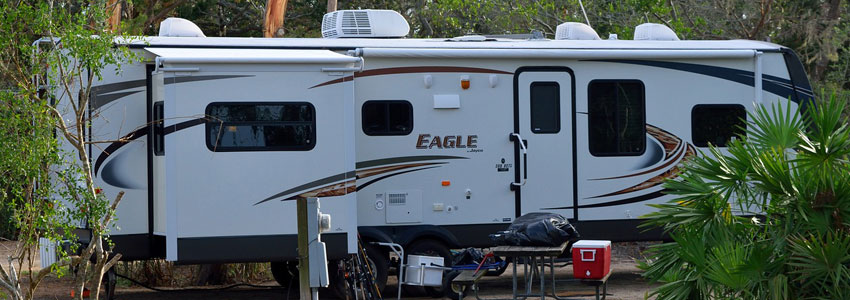Understanding Mortgage Fees
When researching mortgages, not only should you look at the obvious deciding factors such as interest rate, the term length and the type of mortgage, but you should also look at the mortgage fees that will need to be paid. Some will need to be paid when you apply for a mortgage and others will need to be paid afterwards, once you have the mortgage.
Mortgage fees can make a significant difference to how much a mortgage costs, especially for smaller mortgages, so it is essential to factor this in when working out which mortgage deal is really the right one for you. Although this guide covers the most common fees that you may run into all mortgage deals vary.
You may find that some, all or none of the fees we mention apply to a mortgage deal you are interested in. You may even find fees we have not mentioned in our list! So it is important that you check the details closely before making a decision on which mortgage you want to proceed with.
What Mortgage Fees are charged when you apply for your Home Loan?
The following fees could be charged by the mortgage lender:
Booking fee
A booking fee (or application fee) is paid at the start of the mortgage application process to ‘book’ your loan whilst your application is dealt with. It is usually paid upfront. It is typically about £100-£200 but does vary across lenders and some don’t charge it at all.
It should be noted, that the booking fee often won’t be refunded if the mortgage is not taken out in the end. This mortgage fee is often attached to a mortgage product by the lenders to discourage time wasters.
Arrangement fee
An arrangement fee (or completion fee) is paid to the lender to go ahead and arrange your mortgage. The cost of this can vary significantly and can range into the £1000’s. It can be paid upfront or, quite frequently, it can be added to the mortgage. Some arrangement fees are even charged as a percentage of the loan size.
This is a mortgage cost not to be overlooked! However, the larger your mortgage is, the more likely it will be to make mathematical sense to swallow a large arrangement fee in exchange for a lower rate of interest.
If you decide not to proceed or your mortgage application is eventually declined, this mortgage fee is usually refunded but as ever make sure you check this upfront before you make an application.
Valuation fee
This is a fee charged by the lender to carry out a survey on the property you are buying. It is a basic survey to check the property is adequate to lend on. You can opt for a full in-depth survey called a Home buyers or Full Structural survey for an additional cost. The cost of the basic survey usually depends on how much your property is worth (your lender will have a set price list) and varies considerably for each lender.
Some lenders don’t charge it at all and offer free valuations particularly if you are asking for a remortgage rather than buying a new home. If your mortgage application is declined or you cancel your application, you might get a refund if the valuation has not yet taken place. In addition to the valuation fee, some lenders also charge a valuation administration fee. This is to cover any administration costs arising from processing the valuation.
CHAPS (Clearing House Automated Payment System) Fee
Also known as a Telegraphic Transfer fee, this mortgage fee is charged for sending the mortgage funds to your solicitor. This is usually paid on completion and can often be added to your mortgage. Typically a charge of £25 to £50.
Mortgage Account Fee
This is a fee charged by your lender for setting up, maintaining and closing down your account and is normally added to your mortgage balance on completion (although interest is not always charged on this). The amount varies but is usually between £100 to £300.
Higher Lending Charge (HLC)
If you you have a small deposit and your mortgage has a high loan-to-value, your lender can charge you this mortgage fee to cover any increased risk. It is like an insurance policy to protect the lender if you default on your mortgage and funds cannot be fully recovered.
It can be paid on completion, paid upfront or added to the mortgage balance and is often charged as a percentage of your loan amount. Fortunately higher lending charges have not been seen for quite some time now so you are currently unlikely to come across this cost.
Own Building Insurance Fee
This is a more unusual fee so check with your lender whether it is applicable to your mortgage. If it is applicable, it will be charged by your lender if you decide to find your own buildings insurance rather than take the one offered by them. It is usually around £25.
Setting up a mortgage may incur costs from other parties such as solicitors and other mortgage brokers:
Legal fees
Legal fees are paid to your solicitor for completing the legal work involved in the mortgage process. This mortgage cost is also known as a conveyancing fee. It is usually charged when the mortgage has started and can also vary depending whether your property is freehold or leasehold and whether you are purchasing or remortgaging.
If you are remortgaging it is common to see mortgage products offering a free in-house legal package. This is great as it will save you some money but the services can often be slow, therefore, if time is an important factor you will want to consider another option. Read our comprehensive guide to conveyancing for further details.
Mortgage Advice Fees
As mortgage options are so vast and complicated, advice from a mortgage broker can be extremely valuable. Many mortgage brokers will charge a fee for their assistance throughout the process. These fees vary wildly and can be a significant cost with some establishments charging £1000’s for their help.
You can in fact, use our mortgage advisors for free! We will assess your individual circumstances, check through affordability and recommend the most suitable mortgage for you. Our advisers will then be on hand to manage the mortgage application process and be the point of contact between you and the chosen lender. Get advice now from one of our team.
What mortgage fees are charged after you have a mortgage in place?
Early Repayment Charge
If you come out of your mortgage before your agreed product term ends, then you will often need to pay an early repayment charge which is usually charged as a percentage of the loan. This mortgage cost is particularly relevant to introductory fixed, discounted or tracker mortgages.
You can read about these different types of mortgage products here . In some cases, you might be required to even pay back any incentives that you received when taking out the mortgage such as discounted legal costs of free valuations.
An early repayment charge can be a very expensive proposition so it is very important to consider the pros and cons of locking yourself into a mortgage deal for a significant period of time. There are usually some deals available that do not have any charges for repaying early so these are worth considering if you think there is a chance you will need to repay the loan quickly.
Missed payments
If you miss a monthly payment, your lender might charge you a fee for your account being in arrears. You should also be aware that if you fail to pay your mortgage, you are at risk of losing your property.
Final considerations
This guide has outlined the mortgage fees that can be charged by a lender at the beginning of the mortgage process when you apply, right through to when you finish paying your mortgage or close your mortgage account.
When making your final mortgage product selection, pay careful attention to the mortgage fees that will be charged as these can mount up and become a deal breaker. Also be sure to factor in the legal fees and any mortgage advice fees too. For free advice on anything you’ve read here speak to one of our helpful advisers.





